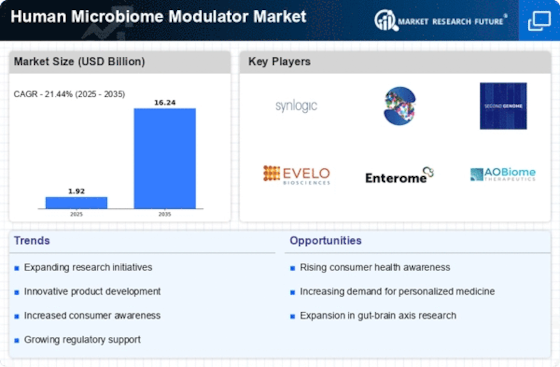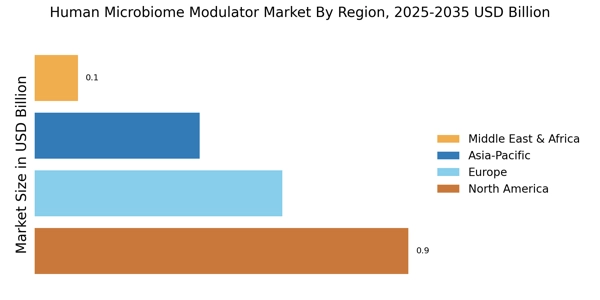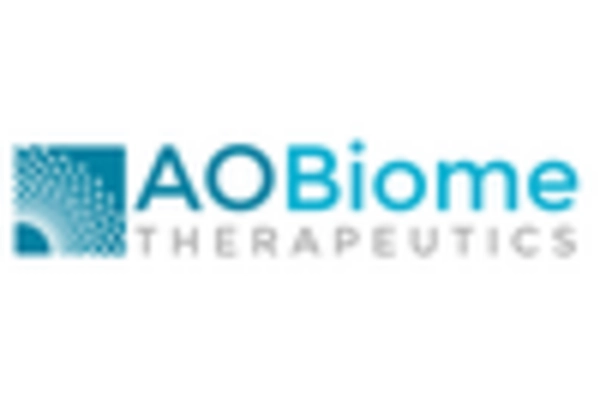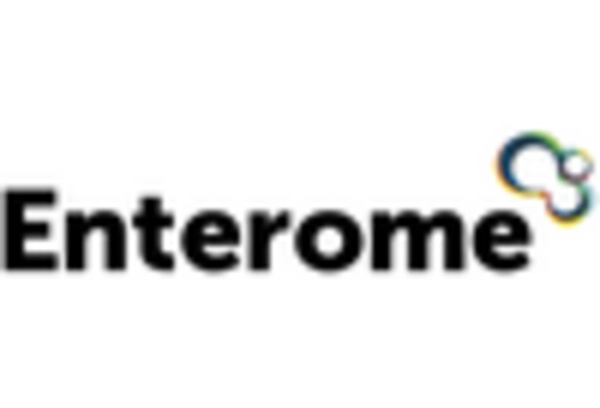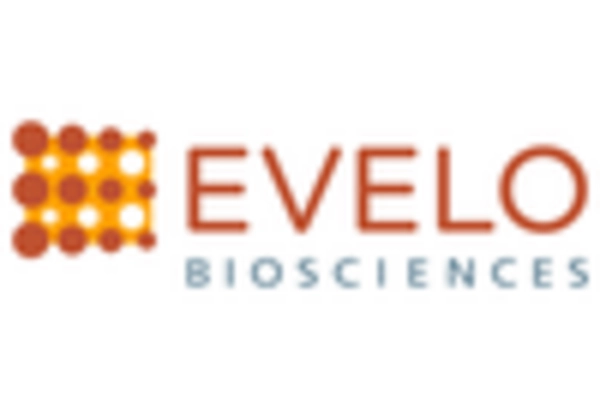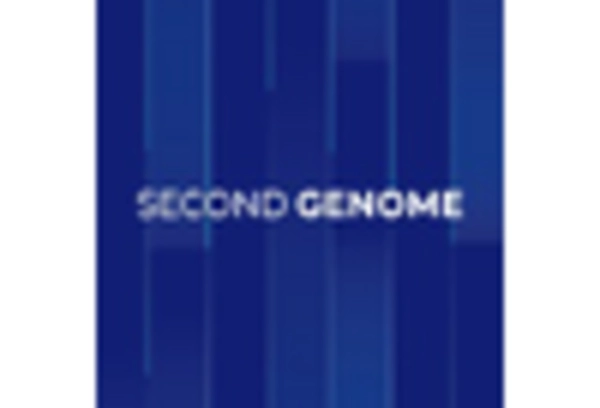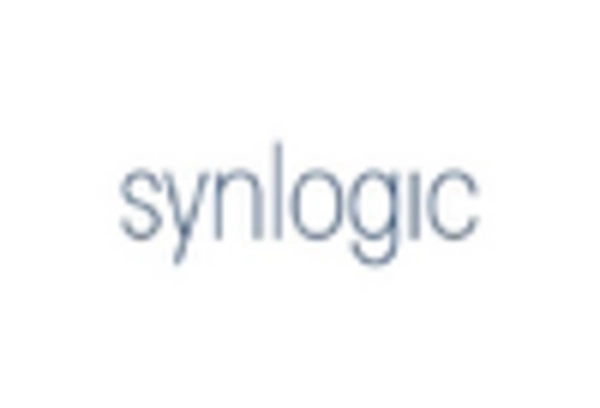Advancements in Microbiome Research
Recent advancements in microbiome research have unveiled the complex interactions between gut microbiota and human health, which may serve as a catalyst for the Human Microbiome Modulator Market. The discovery of specific microbial strains that influence metabolic processes and immune responses suggests that tailored microbiome modulators could enhance health outcomes. Furthermore, the market is witnessing a surge in clinical trials aimed at validating the efficacy of these products. As of October 2025, numerous studies are underway, exploring the potential of microbiome modulators in treating various diseases, including obesity and diabetes. This growing body of evidence is likely to foster consumer confidence and drive market growth, as healthcare professionals increasingly recommend these solutions.
Integration of Technology in Healthcare
The integration of technology in healthcare is reshaping the landscape of the Human Microbiome Modulator Market. Innovations such as artificial intelligence and machine learning are being utilized to analyze microbiome data, leading to the development of personalized health solutions. These technologies enable the identification of specific microbial profiles that can inform tailored treatment plans. As a result, companies are increasingly focusing on creating products that cater to individual microbiome compositions. This trend is likely to enhance the efficacy of microbiome modulators, making them more appealing to consumers. Additionally, the rise of telehealth services is facilitating access to these products, further driving market growth as patients seek convenient solutions for their health needs.
Consumer Demand for Preventive Healthcare
The shift towards preventive healthcare is becoming increasingly pronounced, influencing the Human Microbiome Modulator Market. Consumers are now more proactive about their health, seeking products that not only address existing conditions but also promote overall well-being. This trend is reflected in the rising sales of dietary supplements and functional foods that support gut health. Market data indicates that the dietary supplements segment is projected to grow at a compound annual growth rate of over 8% in the coming years. As individuals become more educated about the role of the microbiome in health, the demand for microbiome modulators is expected to rise, prompting manufacturers to innovate and diversify their product offerings.
Regulatory Support for Microbiome Products
Regulatory support for microbiome products is emerging as a crucial driver for the Human Microbiome Modulator Market. As regulatory bodies recognize the potential health benefits of microbiome modulators, they are establishing clearer guidelines for product development and approval. This regulatory clarity is likely to encourage investment in research and innovation, as companies feel more secure in navigating the regulatory landscape. Furthermore, the establishment of frameworks for safety and efficacy assessments is expected to enhance consumer trust in these products. As of October 2025, several countries are actively working on regulations that could streamline the approval process for microbiome-based therapies, potentially accelerating market entry for new products.
Rising Prevalence of Gut-Related Disorders
The increasing incidence of gut-related disorders, such as irritable bowel syndrome and inflammatory bowel disease, appears to be a primary driver for the Human Microbiome Modulator Market. As awareness of the gut-brain axis and its implications on overall health grows, consumers are seeking innovative solutions to manage these conditions. Reports indicate that the prevalence of these disorders has risen significantly, with estimates suggesting that around 15% of the population may experience some form of gastrointestinal issue. This trend is likely to propel demand for microbiome modulators, as they offer potential therapeutic benefits. Consequently, companies are investing in research and development to create targeted products that address these specific health concerns, thereby expanding their market presence.


